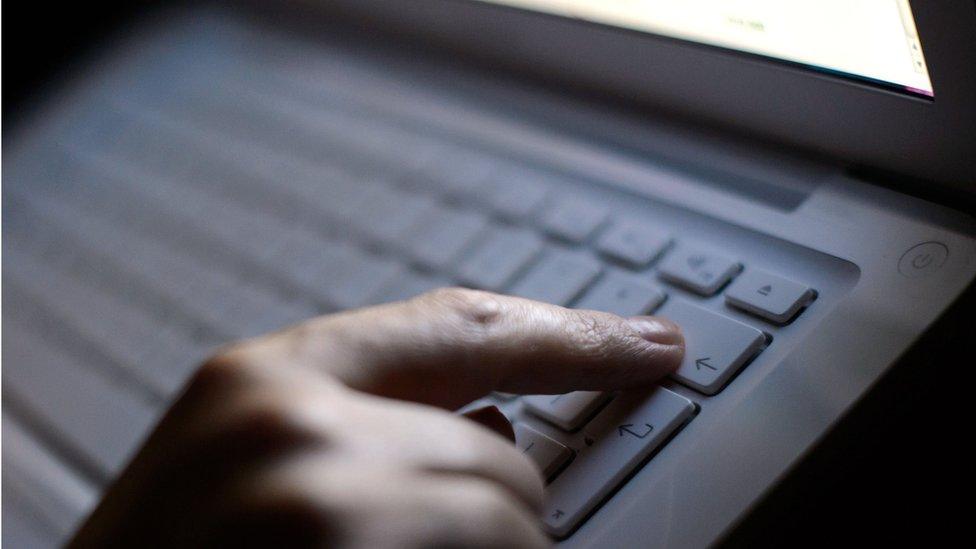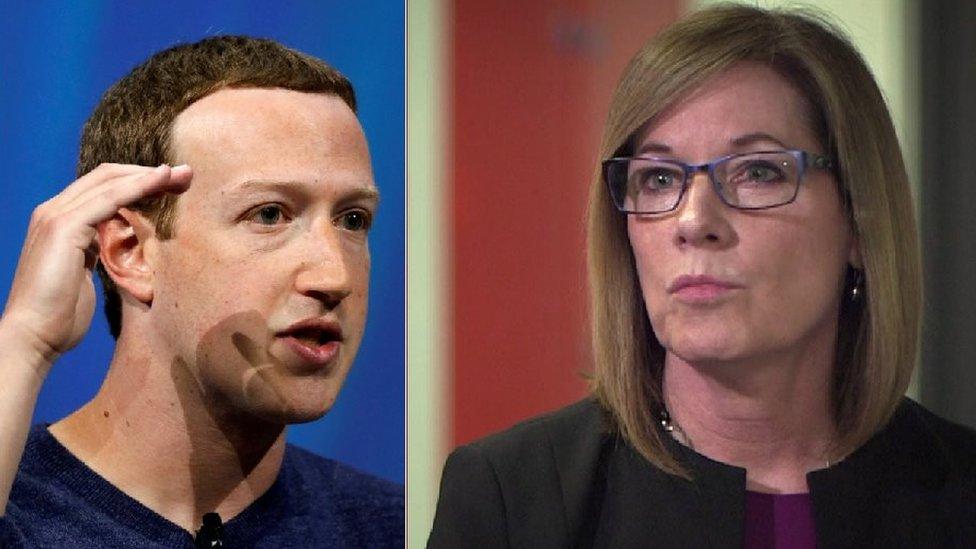MPs call for laws to protect elections against online interference
- Published

New laws should be brought in within six months to protect elections from online interference, MPs have said.
The Digital, Culture, Media and Sport Committee said rules around political advertising and campaign funding were wholly inadequate for the digital age.
It wants stronger checks for online donations, clearer records on digital spending and information about who is behind adverts.
The government agreed there needed to be "robust safeguards".
A spokesman said they had already pledged to hold a consultation on the issues later this year.
The select committee has issued its plea in a report, external as a response to the consultation on the government's online harms whitepaper - which closed on Monday.
The committee said the paper "has scant focus on electoral interference and online political advertising" or analysis about foreign players targeting voters, despite its recommendations.
Damian Collins, chair of the DCMS Committee said: "We know that our electoral laws are not fit for purpose.
"Political campaigns are fought online, not through the letterbox, and our laws need to be brought up to date with the digital age.
"We've repeatedly highlighted threats to our electoral system and it's essential that public confidence is restored."
A spokesman for the Department for Digital, Culture, Media and Sport said: "The government agrees we need robust safeguards against hostile states, foreign lobbyists and shadowy third parties in place for the digital age.
"We have already pledged to publish a consultation paper on electoral integrity - it is an important convention that the laws affecting political parties should not be changed by governments without proper consultation and discussions with political parties."
'On-going risk'
The call comes after a row over party funding in the European elections earlier this year.
The Electoral Commission visited the offices of The Brexit Party to review how it receives funding after it was accused by former Labour Prime Minister Gordon Brown of receiving a large amount of money via small "undeclared, untraceable payments" online.
It later said the party's funding system left it open to "a high and on-going risk" of impermissible donations.
But the Brexit Party's leader, Nigel Farage, accused Mr Brown of "a disgusting smear" and said no rules had been broken.
Under UK law, donations of £500 or above must be made by a "permissible donor" - someone who is listed on the electoral register or a company registered in the UK.
Amounts below that do not have to be declared, but some critics have said there is no way of telling whether those smaller amounts come from British or foreign sources, and therefore the system may be being abused.
Other political parties - including the Conservatives and Labour - also use PayPal to collect donations on their websites.
- Published23 April 2019
